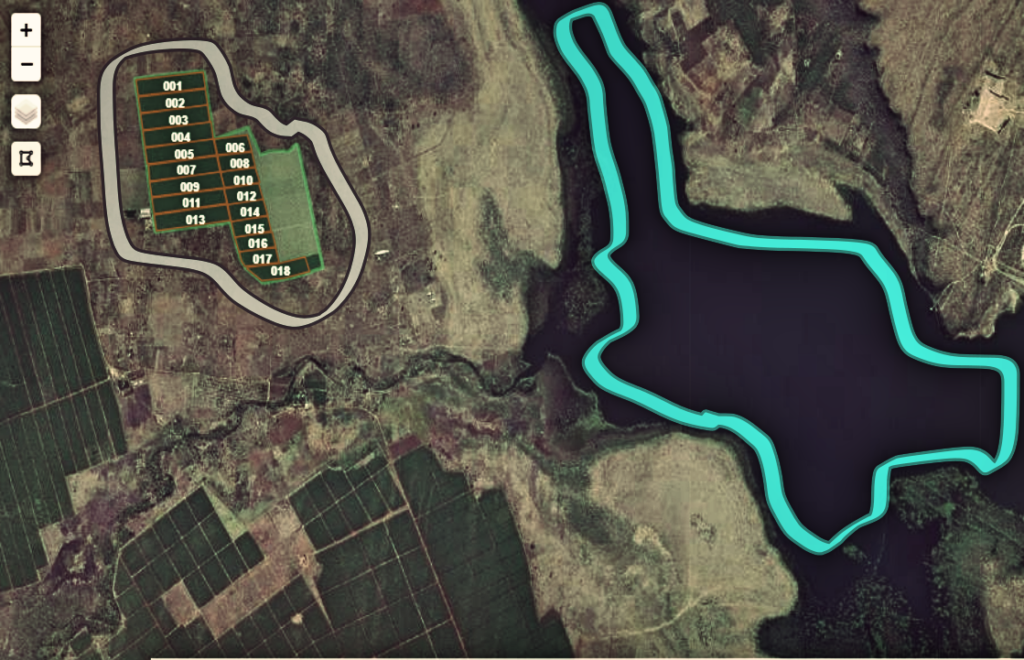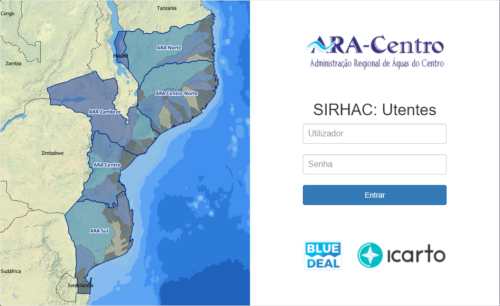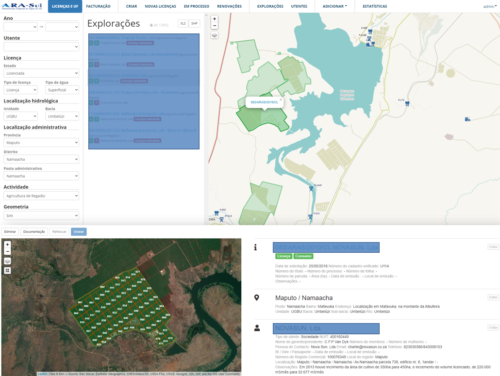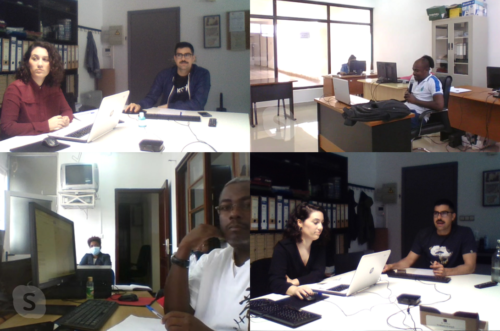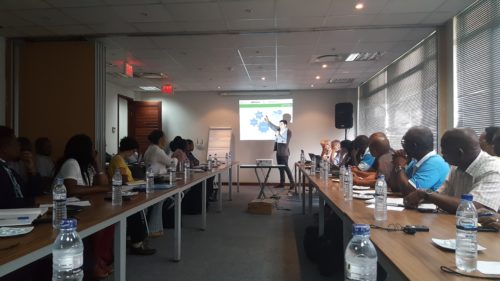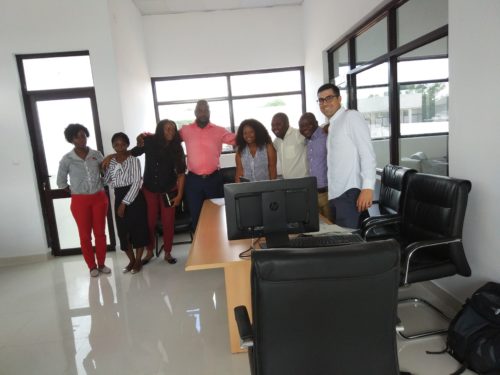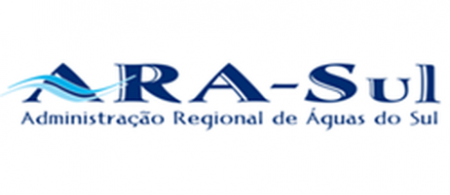The Blue Deal program has the ambitious goal of helping 20 million people around the world to have access to clean, sufficient and safe water. It is an international project led by the Dutch Ministry of Foreign Affairs, the Ministry of Infrastructure and Water Management and the Dutch Water Authorities (DWA) . It runs until 2030 and contributes to the achievement of the Sustainable Development Goals 6.3-6.6 in 14 impoverished countries.
iCarto collaborates with the Blue Deal and the Dutch Water Authorities in Mozambique, where this program has promoted the national implementation of the ARAs IP’s Water Resources Information System (SIRHA) , as well as its integration with other technological platforms and the development of new functionalities.
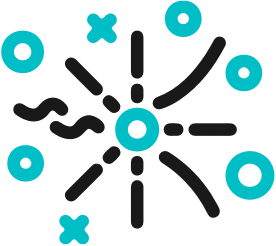
Problems posed by the project
Fresh water is essential for life and development. The sustainable and rational use of water is of vital importance to protect and conserve the environment. The large increase in freshwater consumption and the effects of climate change and drought have become one of Mozambique’s main problems , increasing inequity in access to water.
To try to alleviate and solve this problem, it is essential to professionalize the planning and management of water resources carried out by the Administrações Regionais de Águas de Moçambique Institutos Públicos (ARAs IP). Within this objective, it is vitally important to apply the laws and regulations on water exploitation, associated with the use of licenses , which help to sensitize users about the rational use of water. water resource and plan its use .
To facilitate and make this work more efficient, iCarto, in close collaboration with the ARAs IP, designs the ARAs IP’s Water Resources Information System (SIRHA) within the framework of the SIXHIARA project.
Implementing a system at the national level in all ARAs IP in the country, as well as making all the necessary improvements to adapt it to their different realities, was an effort that the SIXHIARA project could not fully cover.

And how we solved them
After the implementation of the SIRHA system in ARA-Sul, IP in 2018, the following results and methodological improvements have been achieved:
- Triple the number of licenses managed annually.
- Double billing and increase the financial capacity of the institution.
- Increase efficiency and improve technical decision-making .
- Reduce the time of management processes by half.
- Reduce inconsistencies and inconsistencies in data by 90%.
Backed by these good results, the Dutch Water Authorities (DWA) and the ARAs IP decided to bet on the SIRHA and its methodological improvements and implement it as a national system in all the ARAs IPof Mozambique. In a first phase, the system was implemented in:
- Former ARA-Zambeze (2018-2019).
- Former ARA-Centro and ARA Centro-Norte (2019-2020).
ARA-Zambeze (2018-2019), ARA-Centro and ARA Centro-Norte (2019-2020).
In the second phase of the project, numerous trainings have been carried out, accompanied by the ARAs IPin the process of technological adaptation, as well as new functionalities in the system, including that stand out:
- Integration of the SIRHA system with the hydrological planning program WEAP.
- Integration of the SIRHA system with the accounting program Primavera.
- Connection with satellite image servers and new geometry editing module.
- SIRHA-Móvil : Integration with the field data collection application Geopaparazzi .
In 2020, the restructuring and unification of the ARAs was approved, legally becoming public institutes and unifying the 5 former ARAs into the current 3 ARAs IP. The third phase of the project (2021-2022) had the challenge of adapting the system to this new reality. Other notable activities were:
- Delimit the sub-basins throughout Mozambique and integrate them into the SIRHA system.
- Dynamize a national working group on licensing, with representation from all ARAs IP and the DNGRH.
- Carry out a pilot of online licensing orders on the ARA-Sul, IP website.
- Assess the potential of remote sensing for the inventory of agriculture farms at the national level.

